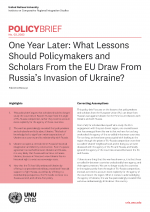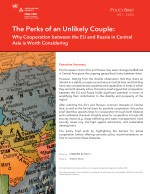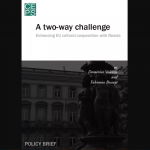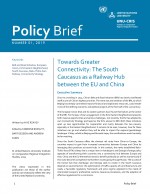Bringing Turkmen Gas to the European Market
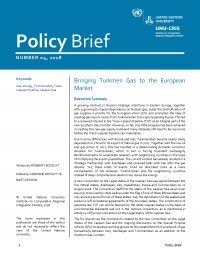
A growing mistrust in Russia’s strategic intentions in Eastern Europe, together with a growing European dependency on Russian gas, made the diversification of gas supplies a priority for the European Union (EU) and prompted the idea of creating gas export routes from Turkmenistan to Europe bypassing Russia. This led to a renewed interest in the Trans-Caspian Pipeline (TCP) as an integral part of the new Southern Gas Corridor. However, so far, only little progress has been achieved in creating this new gas supply route and many obstacles still need to be overcome before the Trans-Caspian Pipeline can materialize.
Due to price differences with Russia and Iran, Turkmenistan became nearly solely dependent on China for its export of natural gas in 2017. Together with the low oil and gas prices of 2017, this has resulted in a deteriorating domestic economic situation for Turkmenistan, which in turn is forcing President Gurbanguly Berdimuhamedov to ameliorate relations with neighboring countries in the hope of multiplying the export possibilities. The current context has already resulted in a Strategic Partnership with Azerbaijan and renewed talks with Iran after the gas dispute. Yet, these kinds of events could be described more as a mere normalization of ties between Turkmenistan and the neighboring countries instead of deep comprehensive deals on key issues like energy.
A new Convention on the Legal status of the Caspian Sea was signed between the five littoral states, Azerbaijan, Iran, Kazakhstan, Russia and Turkmenistan on 12 August 2018. The Convention reaffirms the status of the Caspian Sea as an inner sea only to be used by ships sailing under the flag of one of these littoral states and only allowing armed forces of these states. Yet, the delimitation of the seabed and subsoil is left to bilateral agreements of the boundary states. The construction of pipelines like TCP can still be blocked by the other Caspian states on the basis of environmental standards laid out in the Teheran convention, as is mentioned in article 14 of the new Convention on the Legal Status of the Caspian Sea.
The EU should use the momentum created by the new Convention on the Legal Status of the Caspian Sea and the ongoing discussions on the Special Purpose Vehicle (SPV) to develop working groups for the establishment of a network of gas transactions between Iran, Azerbaijan and Turkmenistan as an addition to the Southern Gas Corridor.

